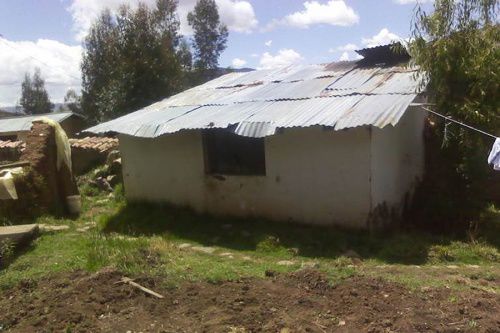Inside the cracking adobe walls of a small building in Haquira, Peru, an on-duty nurse and staff are busy providing care for local women during the late stages of their pregnancy. In the remote highlands of Peru, it is not uncommon for women near the end of their pregnancy to walk hours — or even days — to the nearest health care facility in order to give birth or receive medical attention. One woman, Virgina, has been walking to the La Casa de Espera maternal facility in Haquira, Peru for years, traveling there each time she has given birth to her six children. But on her most recent trip in December, she noticed how dilapidated the facility had become. “The home is in a serious state of disrepair. The adobe walls are crumbling, the bathroom is dilapidated, the stove is ancient, they don't have enough chairs, dishes, or pots and pans, and the beds are breaking apart,” she said. Esperanca, an international nonprofit headquartered in Phoenix, Arizona, founded La Casa de Espera in 1998 with the goal of fostering good health care for the women and families in Peru. La Casa de Espera, meaning the House of Waiting, is a maternal waiting facility, where women in the late stages of their pregnancy can find comfort and medical help before giving birth. It has been running for the past 17 years, and served around 100 women last year. The 1,050 square foot building has three bedrooms with four beds in each room. Staff members are able to assist 12 women at a time who are in need of medical care and attention during the last days of their pregnancies. Most local pre-natal care centers in the area do not provide late-stage pregnancy attention or child birth care. La Casa de Espera is one of the few that administers 24-hour care to women and arranges transportation to the nearest hospital when she gives birth. However, the facility needs additional funds to remodel the home and provide the proper nutrition to women during the critical final weeks of their pregnancies. “We are one of the only homes like this in the area, and we know the women are counting on us to continue to provide care,” stated Jared Leslie, the director of development for Esperanca, in a press release. The center is working to raise $37,000 to remodel its facility. They will use the money to fix the dilapidated building, provide food to the women in need, and purchase a much needed telephone — something La Casa de Espera has never had. More information about La Casa de Espera can be found here.

